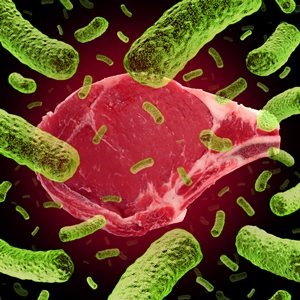
A small village in rural Eastern Cape was shaken up after more than 50 people, displaying similar gastro-like symptoms, were admitted to hospital.
It's believed that the Mpoza village patients all consumed meat from a cow which had been allegedly bitten by snake.
Department on high alert
Eastern Cape Department of Health spokesperson, Sizwe Kupelo, said that the patients were transported to hospitals in Mthatha, which is more than four hours' drive from the village.
Kupelo told Health24, "Fortunately, there are no casualties, but we have launched an investigation into the cause and taken blood samples to be analysed.
"The Department remains on high alert, however, because we aren't sure if there are any other people who may be ill. Some people display symptoms immediately, while for others it may take longer."
Kupelo says that health officials have classified the cases as food poisoning, while ruling out Listeria.
Was it the venom or bad meat?
The possibility that the cow was bitten by a snake isn't necessarily a valid factor either. Herpetologist and Executive Director for Biodiversity at Cape Nature, Dr Ernst Baard told Health24 that in his opinion it is highly unlikely that people were affected by the venom and that it's more likely that the meat was off.
"Potentially, any large venomous snake such as cobras and puff adder can inject sufficient amounts of venom during a bite to kill a large mammal like a horse or cow.
"However, unless a human has a serious stomach or mouth ulcer where venom could enter the bloodstream, the ingestion of snake venom is mostly not dangerous."
"Snake venom is a complex protein and are broken down by intestinal processes and substances," said Baard.
Don't eat risky meat
A leading toxicologist who prefers to remain anonymous, confirmed Dr Baard's sentiments with regards to human beings ingesting snake venom, "It is highly unlikely that those people were affected by venom in the meat; the meat had probably gone off."
She also urged people to not put themselves at risk by eating meat that hasn't been properly preserved or prepared.
In the wake of the recent Listeriosis outbreak, South Africans have been urged to be cautious and take extra care to wash and cook food thoroughly,
While the Listeria bacterium is predominantly found in contaminated soil, water and vegetation, it may also be found in cattle, milk and poultry.
Image credit: iStock




 Publications
Publications
 Partners
Partners











